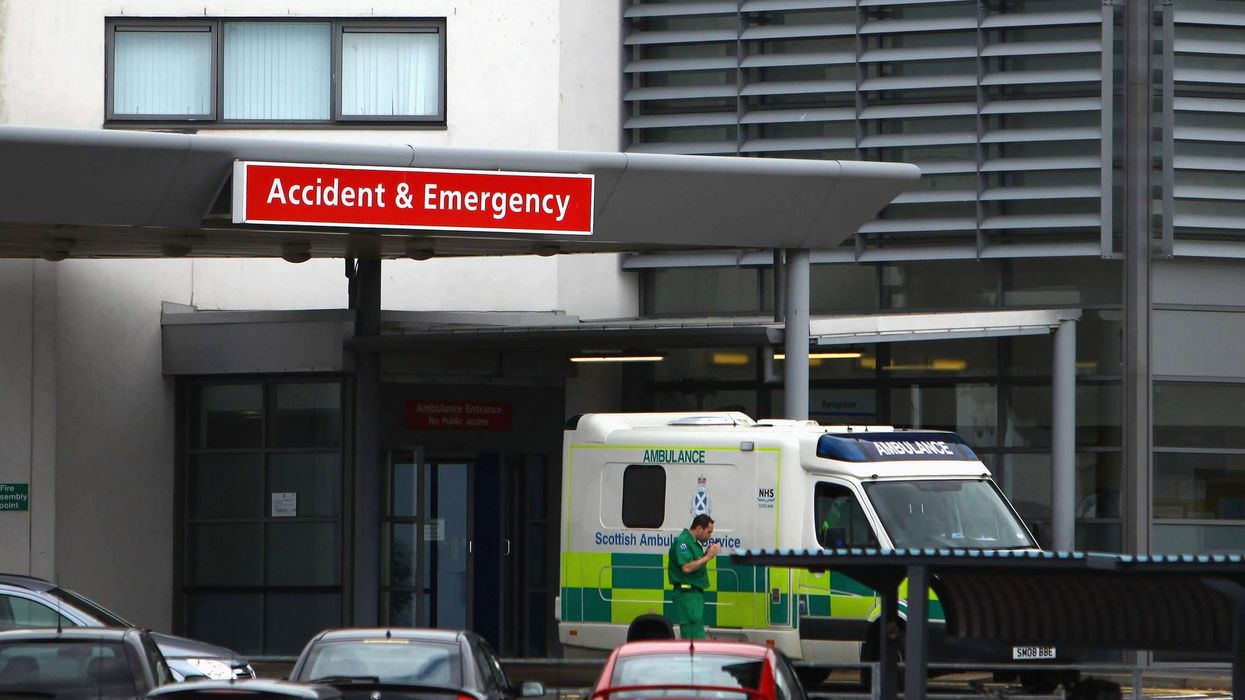By Mike Hewitson
Right now the NHS is in safe mode. It is only performing core functions and anything that can be delayed or cancelled has been. But at some point the NHS will need to reboot. It can’t go back to business as usual, because it has been changed materially by this pandemic.
GPs have adopted technology to prevent unnecessary face to face contact, the public have stopped going to A&E (at last!) for minor conditions and pharmacy has been the front door to the NHS. The last one isn’t really a change, we’ve always known and patients have always known that, but maybe now is the time that the NHS understands what that means.
Patients want on demand access to care when and where they want it, they don’t want to be told it’s a three-week wait by a receptionist, and believe me, the waits will be much longer than three weeks when this is all over – there is a huge backlog of routine work which has been building up in the background which will need to be cleared when this is all over.
Pharmacy is part of the solution but as a sector we need to be clear about what it is that we want and are able to do. It is clear to me that the pre-Coronavirus model of community pharmacist consultation service (CPCS) is dead. Patients are routinely coming into pharmacies rather than going to their GPs at the moment, so there is no way that the genie is going back in that bottle.
Practices are not going to have capacity when all of this is over: GPs will need some down time, some will have to recover from the healthcare effects of COVID-19 infection, others will simply have been burnt out.
We’ve proven in this crisis that we can cope with a wider range of conditions without adding to the daily death toll. We simply must have a self-referral mechanism to allow patients to walk into a pharmacy and for us to do what we can to help them.
The argument about the referral needing to come from 111 or GP Practice is specious at best, pharmacists will use their professional judgement and I do not believe that people will take the mick – if they do, they’ll only be hurting themselves in the long run, because our funding is fixed and the more activity we all do the smaller each slice becomes.
Anything less than full autonomy to be able to offer this support will be a further slap in the face, and for the NHS it will represent another self-inflicted shot in the foot. They simply do not have any alternative in the short to medium term or else General Practice will not be able to cope.
Pharmacy will also be critical to efforts to ease the lockdown. A crucial part of this strategy will be testing, and eventually immunisation. General Practice does not have the capacity to do this at the best of times. As we move into this autumn and winter alongside seasonal flu there is no way that they can absorb the additional workload to take both of these functions on.
While testing remains a controversial area because of the quality of the testing kits available, I’m confident that sooner or later someone will get this right and in a form that will not require labs.
A network of 14,000 testing centres could be available across the whole of the UK in a matter of days once these kits are available. Once a person has been tested to show that they have antibodies against the virus, the pharmacist could then certify the result to allow the patient to return to work, school or society.
Millions upon millions of people will need to be tested. The 8,000 GP practices in England alone could not cope with 67,000,000 people demanding testing – this would see more than 8,000 patients per practice and would deluge them. Pharmacies could supplement or replace the need to put extra strain on General Practice.
Likewise with immunisation, once a vaccine is available there will be pressure to get as many people vaccinated as quickly as possible. Watching the NHS can sometimes be like watching a stuck record, perpetually making the same mistakes, there will be a tendency emanating from the ‘groupthink’ at the top of the organisation that the solution is GPs or possibly a special service to do nothing but this, but again the solution is pharmacy.
We have already demonstrated that we can vaccinate safely and at scale, so it is essential that we are part of planning the eventual solution or else we could end up with another mess like NUMSAS or the Pandemic Delivery Service.
This is the real core of the problem as far as I am concerned – there is no clinical leadership anywhere in the NHS in any of the countries of the UK from community pharmacists.
The NHS Director of Primary Care (Dr Nikki Kanani) is herself a part-time practising GP, we’ve got Dr. Ridge & Co. who have no recent, relevant experience in community pharmacy, and as a result we end up with the wrong solutions implemented badly.
This cannot be allowed to go on. I want to see a community pharmacist who commands the respect of their peers be appointed to be the NHS lead on community pharmacy.
Some of the breaches of trust through this crisis have been fundamental, whether it is PPE, testing, lack of recognition or the question of resources – in order to move on we need a different mechanism through which to engage and convey the concerns of our sector.
Personally, I believe that the Lansley NHS reforms have been an utter disaster with NHS England being left completely unaccountable to either the public or politicians.
This is critically important because patients and politicians both like community pharmacy a lot more than the civil servants. This is the key to achieving the long-term sustainable change that we need.
So in summary, the wheel has turned and we are back in a position where the NHS needs the community pharmacy network now more than ever.
There are those who have talked down its value and functions over the last five years, and it is difficult to see how those same people can preside over a thawing of relations. We need the NHS to rethink its approach to community pharmacy, which begins with having champions who speak not to the cost but to the tremendous value that we play to health and social care.
If we can do this, the opportunities in the medium term are vast: wide scale testing and vaccination to help bring the country out of lockdown, supporting General Practice and rebooting the way that the public uses pharmacies.
Prescribing is an important gateway and we should demand that community pharmacy is given its fair share of Health Education England funding (it receives only a fraction of what it should) to support the development of these skills in our sector.
From there, our potential is unlimited!
Pharmacy contractor Mike Hewitson is a Liberal Democrats councillor and former NPA board member.











